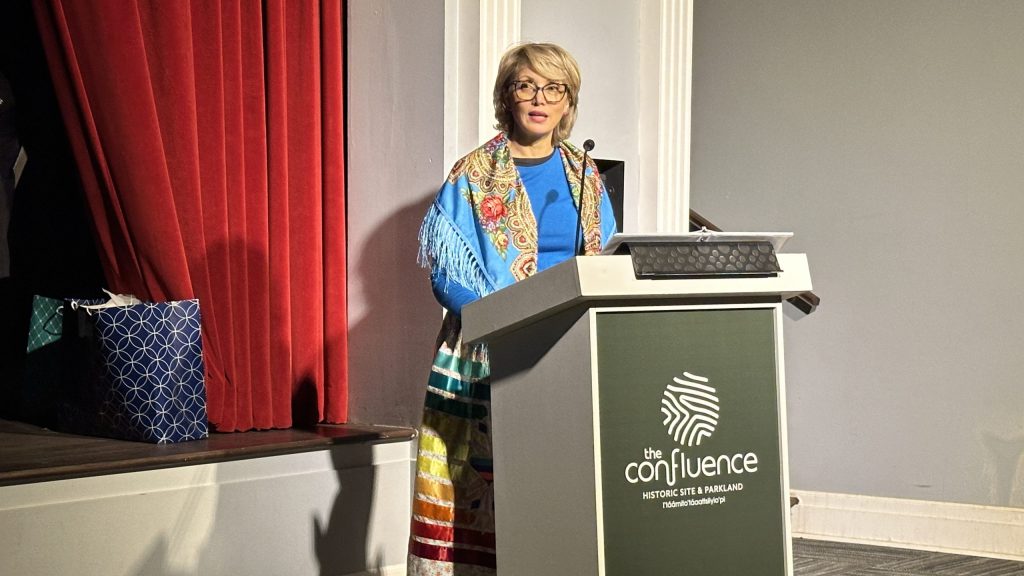Bank of Canada raises interest rate by full percentage point, largest hike since 1998

Posted Jul 13, 2022 5:36 am.
Last Updated Jul 13, 2022 11:28 am.
Borrowing costs have been going up steadily this year and after Wednesday’s announcement by the Bank of Canada, the ‘era of cheap money’ might officially be over.
The Bank of Canada raised its key interest rate by a full percentage point to 2.50 per cent on Wednesday, citing inflationary pressures among other factors.
The rate hike of 100 basis points is the largest single hike since August 1998.
#Breaking Whoa!! The Bank of Canada has just hiked its benchmark overnight lending rate by a full percentage point fearing runaway inflation.
Chooses to "front-load" the increases but also says more hikes are needed.
Overnight rate up 1% to 2.50%— Mike Eppel (@eppman) July 13, 2022
“With the economy clearly in excess demand, inflation high and broadening, and more businesses and consumers expecting high inflation to persist for longer, the Governing Council decided to front-load the path to higher interest rates by raising the policy rate by 100 basis points today,” the Bank of Canada said in its statement.
The central bank also noted that it expects to raise interest rates further.
“The Governing Council continues to judge that interest rates will need to rise further, and the pace of increases will be guided by the Bank’s ongoing assessment of the economy and inflation.”
The central bank said that while global factors has played a key role in driving up inflation — which hit a 39-year-high of 7.7 per cent in May — domestic pressures are moving to the forefront.
“Inflation in Canada is higher and more persistent than the Bank expected in its April Monetary Policy Report, and will likely remain around eight per cent in the next few months,” the bank noted in its statement.
“While global factors such as the war in Ukraine and ongoing supply disruptions have been the biggest drivers, domestic price pressures from excess demand are becoming more prominent.”
Related:
The Bank of Canada said more than half of the items that make up the Consumer Price Index are rising by more than five per cent.
“With this broadening of price pressures, the Bank’s core measures of inflation have moved up to between 3.9 per cent and 5.4 per cent.”
Most economists had forecasted the central bank would raise interest rates by three-quarters of a percentage point.
Following last month’s rate announcement, Governor Tiff Macklem said the central bank “may need to move more quickly” to bring inflation down.
The Bank of Canada has already hiked its interest rate three times this year, in the hopes of bringing inflation down to two-to-three per cent.
However, the rising interest rate also makes life tough for people who have debt, which means you could see a lot less spending and a potential recession for the Canadian economy.
Related: Bank of Canada interest hike concerning for those carrying debt
The silver lining is that as interest rates go up, rate of return on fixed income GICs could rise to the highest level not seen in years.
The next interest rate announcement is scheduled for September 7.
Bank of Canada economic forecast
In its latest monetary policy report, the central bank said it expected Canada’s economy to grow by 3.5 per cent this year, 1.75 per cent in 2023 and 2.5 per cent in 2024.
However, it notes the economy activity will slow as tighter monetary policy takes hold.
“The July outlook has inflation starting to come back down later this year, easing to about three per cent by the end of next year and returning to the two per cent target by the end of 2024.”
The central bank also noted concerns about what rising inflation means for consumers and businesses.
“The bank is guarding against the risk that high inflation becomes entrenched because if it does, restoring price stability will require even higher interest rates, leading to a weaker economy,” it said.
With files from The Canadian Press










